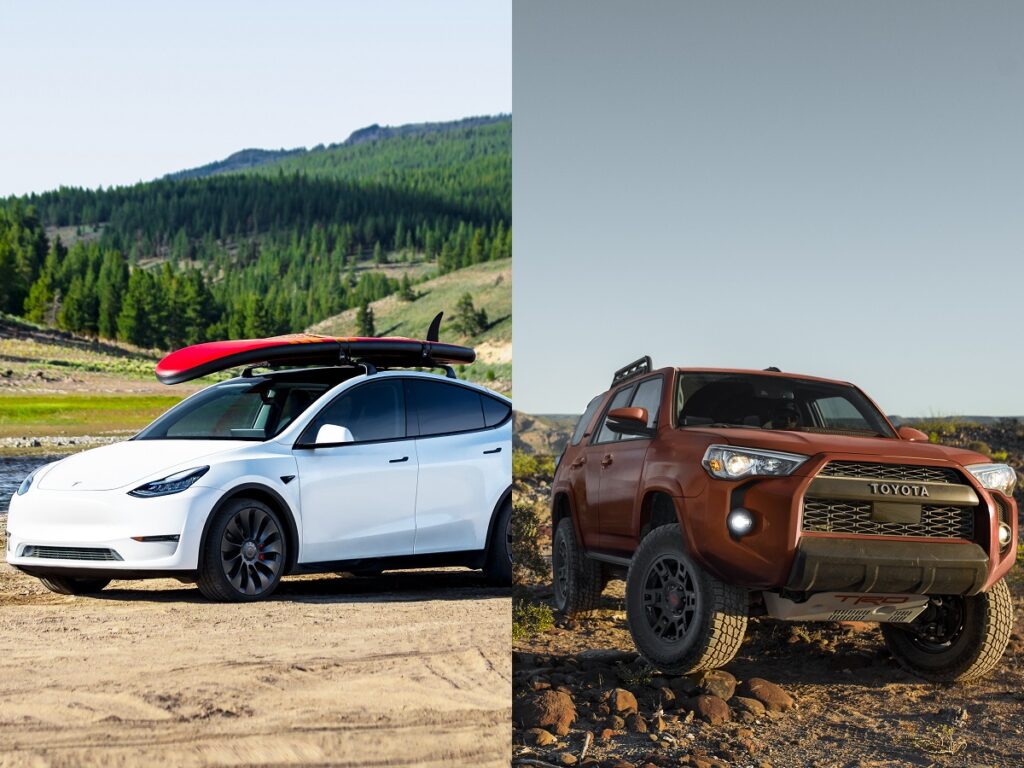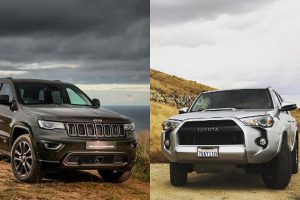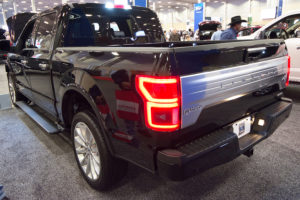2024 Tesla Model Y vs. Toyota 4Runner

If you are looking to buy a new vehicle in 2024, choosing between an electric and gas vehicle is one of the many decisions you’ll be making during the process. The Tesla Model Y and Toyota 4Runner represent two vastly different takes on the modern SUV One is an all-electric vehicle brimming with cutting-edge tech and performance, while the other is a rugged, body-on-frame off-roader built to conquer the wilderness. But which one is worth the cost in terms of performance and savings? Let’s see how these two SUVs stack up against each other!
Design and Utility
From a styling perspective, the Model Y has Tesla’s signature clean, ultra-modern look with a sleek exterior and minimalist interior. The 4Runner, on the other hand, is boxy and very truck-like in its butch design language aimed at off-road capability.
The Model Y provides generous cargo space for an electric SUV, with up to 68 cubic feet with the rear seats folded. However, the 4Runner blows it out of the water with up to 88.8 cubic feet of cargo room. The Toyota’s rugged body-on-frame construction also allows for a superior towing capacity of up to 5,000 lbs when properly equipped versus 3,500 lbs for the Model Y.
Powertrains and Performance
Tesla’s advantage lies in its acceleration. The Model Y’s dual-motor setup provides blistering straight-line acceleration, with the Performance model sprinting from 0-60 mph in just 3.5 seconds. The 4Runner’s V6 is no slouch, but it’s simply outgunned with a 0-60 mph time of 7.5 seconds.
The Model Y also feels notably more agile and sporty in terms of handling, aided by a low center of gravity and instant torque response from its electric motors. Meanwhile, the 4Runner’s truck-based underpinnings result in slower steering response and more body lean through corners.
Efficiency and Range
With an EPA-rated range of up to 330 miles on a full charge, the Model Y can go much further between “fill-ups” than the 4Runner’s 17 mpg combined fuel economy rating. Of course, the 4Runner provides superior overall range thanks to the ability to refuel its gas tank, allowing you to keep going at any time.
Off-Road Capability
While the Model Y offers decent ground clearance (up to 8.4 inches), the 4Runner was purpose-built for off-roading with its 9.6 inches of clearance and a comprehensive suite of off-road hardware. The 4Runner TRD Pro trim takes it even further with:
- Lifted suspension with 2.5″ FOX Internal Bypass shocks
- 1/4″ aluminum skid plates
- Nitto Terra Grappler all-terrain tires
- Multi-terrain Select and Crawl Control
The 4Runner’s true body-on-frame construction, two-speed transfer case, and advanced traction control systems give it incredible off-road capability and durability that the unibody Model Y simply can’t match. From rocky trails to muddy terrain, the 4Runner is king.
Technology and Features
The Model Y leverages Tesla’s industry-leading infotainment system, over-the-air software updates, and available advanced driver-assist tech like Autopilot. The 4Runner has a more basic and dated feature set, though it offers time-tested Toyota durability and reliability.
Price
With a starting price of around $43,000, the Model Y’s cutting-edge powertrain and tech make it a slightly pricier proposition than the $40,000 base 4Runner. However, factoring in fuel savings and incentives can help offset this gap for some buyers.
The Model Y and 4Runner are two immensely capable SUVs aimed at different priorities – one an efficient electric performance vehicle, the other a time-tested off-road adventure-mobile. For buyers able to look past range limitations, the Model Y delivers a thrilling, emissions-free driving experience with lots of space and tech. However, those needing extreme off-road capability with maximum utility may find the 4Runner to be an exceptional choice.
Sure, here are some additional details on off-road ability and maintenance costs for the Tesla Model Y vs Toyota 4Runner:
Ownership Costs
According to data from KBB, the Tesla Model Y has a projected 5-year cost to own of around $39,000, while the Toyota 4Runner comes in at roughly $45,500 over the same period. A few reasons why the 4Runner costs more to own long-term:
- Maintenance – The 4Runner requires typical maintenance items like oil changes, air filters, spark plugs, etc. EVs like the Model Y have far fewer moving parts and maintenance needs.
- Fuel – Electricity costs are much cheaper than gasoline, giving the Model Y a big advantage over the 4Runner’s 17 mpg combined rating.
- Brakes – EV brakes last much longer thanks to regenerative braking.
- Depreciation – While both vehicles hold value well, the Model Y is projected to retain more of its original value over 5 years.
While purchase prices are similar, the Model Y’s lower operating and maintenance costs help offset its more premium pricing compared to the 4Runner. However, the 4Runner’s rugged capability and Toyota’s reputation for reliability remain major selling points for the off-road crowd.





